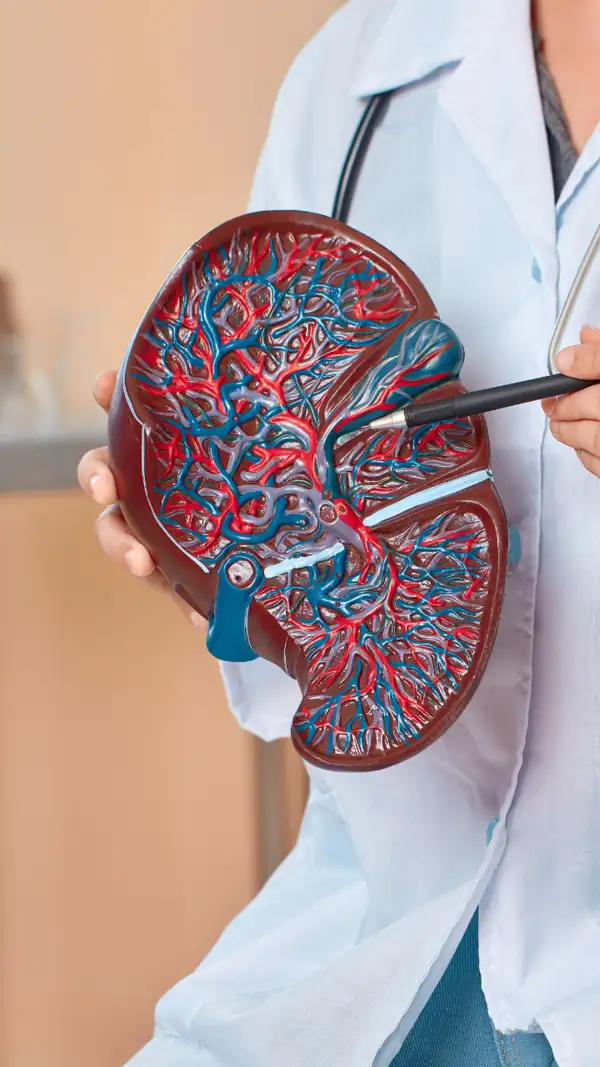- News
- lifestyle
- health-fitness
- health-news
- Obsessed with getting good sleep? THIS habit might be making it harder
Trending
Obsessed with getting good sleep? THIS habit might be making it harder
In today's fast-paced world, many are turning to sleep trackers, but experts warn against "orthosomnia" – an unhealthy obsession with achieving perfect sleep data. This focus can ironically lead to anxiety and hinder sleep quality. To combat this, experts advise reducing reliance on sleep trackers, establishing calming bedtime routines, and addressing sleep-related anxiety through mindfulness and professional help if needed.
“When nothing goes right, go to sleep!”
It’s not for nothing when we simply recommend sleeping it off – whatever ‘it’ is – because, sleep is one of the most vital aspects for overall health and well-being.
Sleeping not only allows the body and brain to repair, restore, and re-energize, but getting enough quality sleep is also essential for maintaining physical and mental health, reducing stress, and improving cognitive function. Insufficient sleep can negatively impact memory, focus, mood, and immune function.

However, despite implementing all these technologies and trends, there are times when sleep evades you, and you end up spending the night staring at the ceiling.
Experts reveal, there might be a habit that is the primary reasons behind the sleeplessness despite keeping up with sleep rituals.
It’s orthosomnia.
What is orthosomnia?
Orthosomnia is an unhealthy preoccupation with getting perfect or "right" sleep, often driven by the use of sleep tracking devices. It's not a formal medical diagnosis, but rather a term used to describe a behavior pattern where individuals become overly focused on their sleep metrics and data from devices, sometimes to the point where it interferes with their actual sleep quality.
According to a 2023 survey from the American Academy of Sleep Medicine, roughly one-third of Americans have used an electronic sleep-tracking device, and close to 70% of those people have changed behaviors because of the data they were presented with.
Why can’t you sleep?
In essence, orthosomnia is a societal phenomenon where the pursuit of "perfect" sleep data can become an obsession, leading to anxiety and potentially hindering sleep quality. The key characteristics are:

Obsessive focus on sleep data: Individuals with orthosomnia are intensely interested in the details of their sleep, such as duration, sleep stages, and other metrics provided by sleep trackers.
Anxiety about sleep: This preoccupation can lead to anxiety and worry about whether they are sleeping "correctly" or if their sleep metrics are up to par.
Dependence on sleep trackers: They rely heavily on sleep trackers and apps for information about their sleep, often becoming overly concerned with the data they provide.
Potential negative impact on sleep: Ironically, the obsessive focus on sleep data can sometimes interfere with actual sleep, causing more sleep disturbances or even worsening insomnia.
What do the experts say?
Dr. Kelly Baron, a psychologist at the University of Utah who researches sleep, told Salon, “In some cases, this can lead people to engage in behaviors that are not healthy for their sleep, like spending more than an hour laying in bed.” She added, “When you have trouble sleeping one of the things we say is, don’t lay there and toss and turn, [but they are] trying to squeeze out more minutes of sleep.”

Baron published the first case reports on orthosomnia in 2017, in which patients essentially reported that if they didn’t get their seven hours of sleep recorded on their sleep tracker, their day was “going to be horrible,” she said.
Rebecca Robbins, a sleep scientist at Brigham and Women's Hospital and an assistant professor of medicine at Harvard Medical School, “I think the enormous interest in sleep tracking and the explosion of interest in sleep-related products and services are indicators of this collective awakening to the importance of sleep.”
How to limit orthosomnia:
To limit orthosomnia, focus on reducing reliance on sleep trackers and sleep-related technology, and prioritize relaxation and good sleep hygiene practices. This involves minimizing screen time before bed, establishing a calming bedtime routine, and addressing anxiety related to sleep.
Here's a more detailed approach:
Reduce reliance on sleep trackers: Use sleep trackers less often. Instead of daily monitoring, use sleep trackers occasionally to identify trends rather than obsessing over nightly data. Focus on long-term trends. Pay attention to overall sleep patterns rather than individual nights. Set realistic expectations. Understand that perfect sleep is not achievable every night.
Establish a calming bedtime routine: Incorporate wind-down activities like reading, meditation, or gentle yoga into your evening routine. Reduce screen time. Avoid screens (phones, tablets, etc.) for at least 2 hours before bed. Create a relaxing environment. Ensure your bedroom is cool, dark, and quiet.
Practice good sleep hygiene: Go to bed and wake up around the same time each day, even on weekends. Reduce intake of caffeine and alcohol, especially in the evening. Drink plenty of water throughout the day, but avoid large amounts before bed.

Address anxiety and perfectionism: If anxiety about sleep persists, consult a healthcare professional or sleep specialist. Consider Cognitive Behavioral Therapy for Insomnia (CBTI): CBTI can help address anxiety and improve sleep habits. Practice mindfulness and relaxation techniques. Techniques like meditation, deep breathing, or progressive muscle relaxation can help calm the mind and body.
Embrace nature and physical activity: Get sunlight exposure. Aim for morning sunlight exposure to help regulate your circadian rhythm. Engage in regular exercise. Physical activity can improve sleep, but avoid intense exercise close to bedtime. Spend time outdoors, which can be calming and help with sleep.
End of Article
Follow Us On Social Media
Visual Stories
Tired of too many ads?go ad free now










